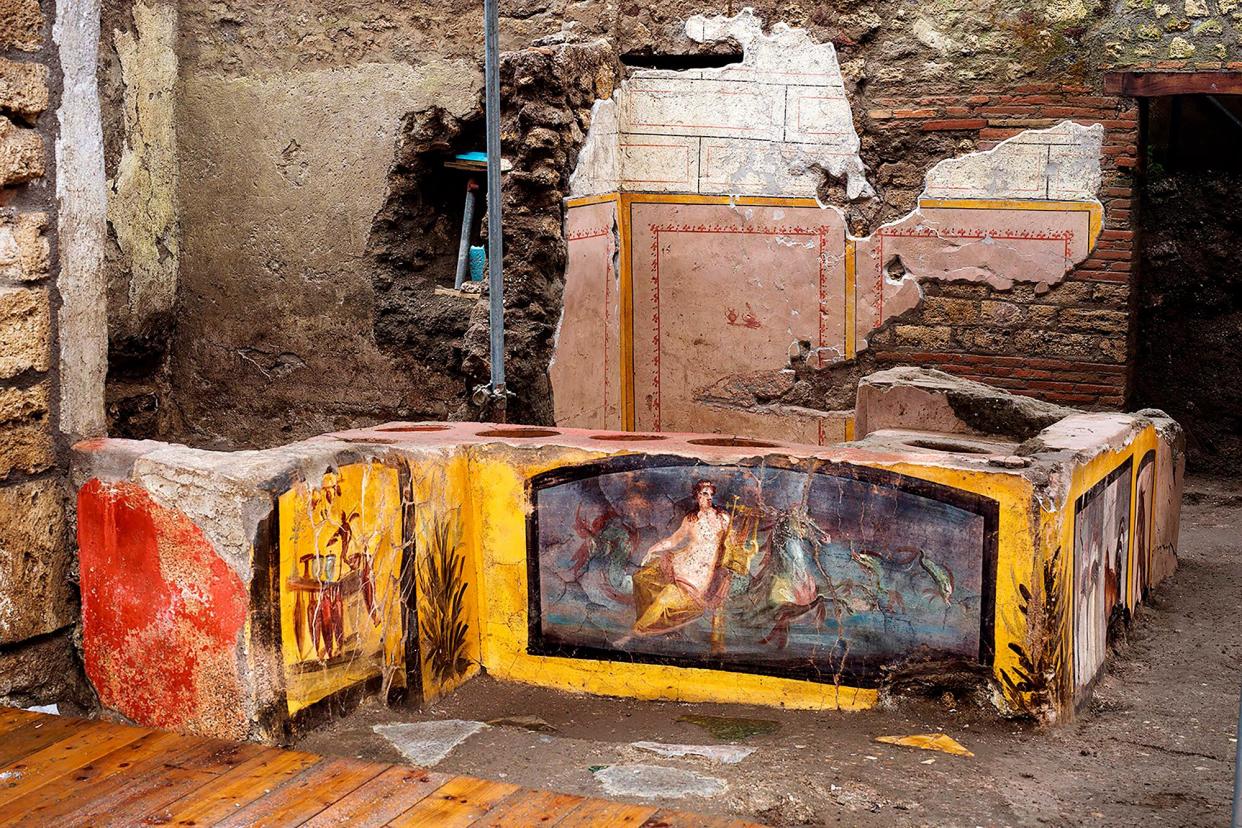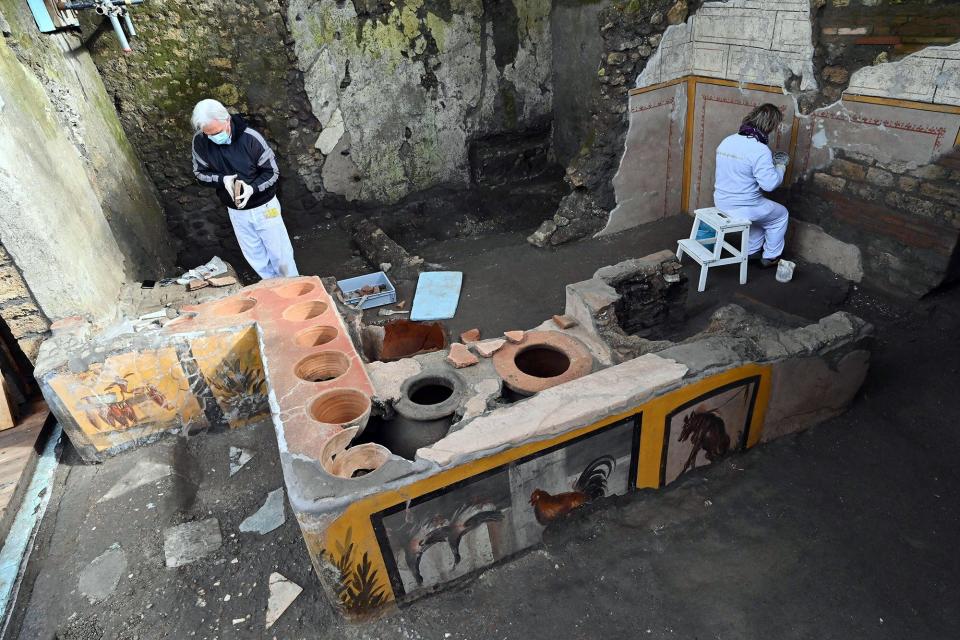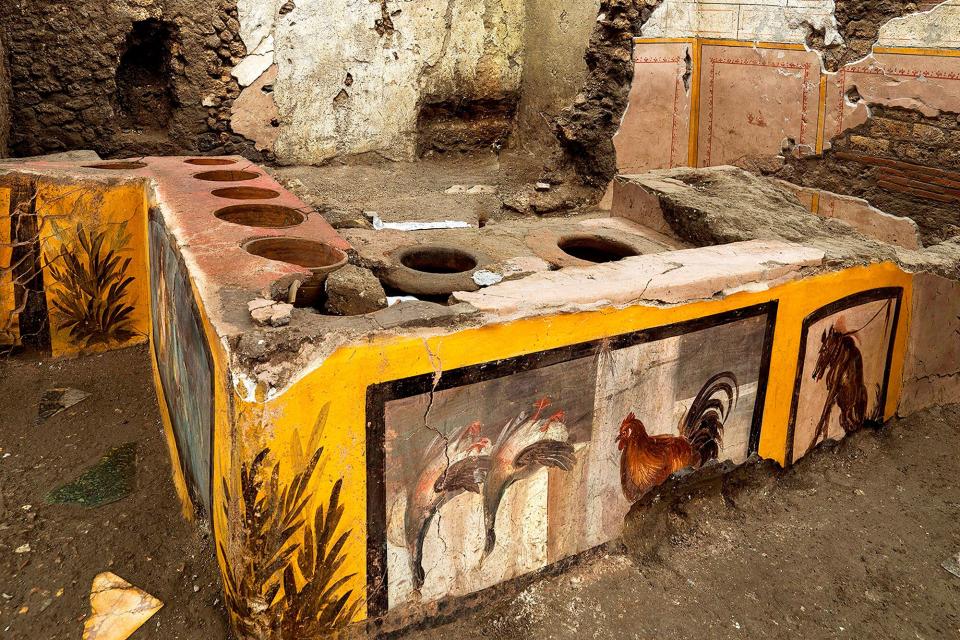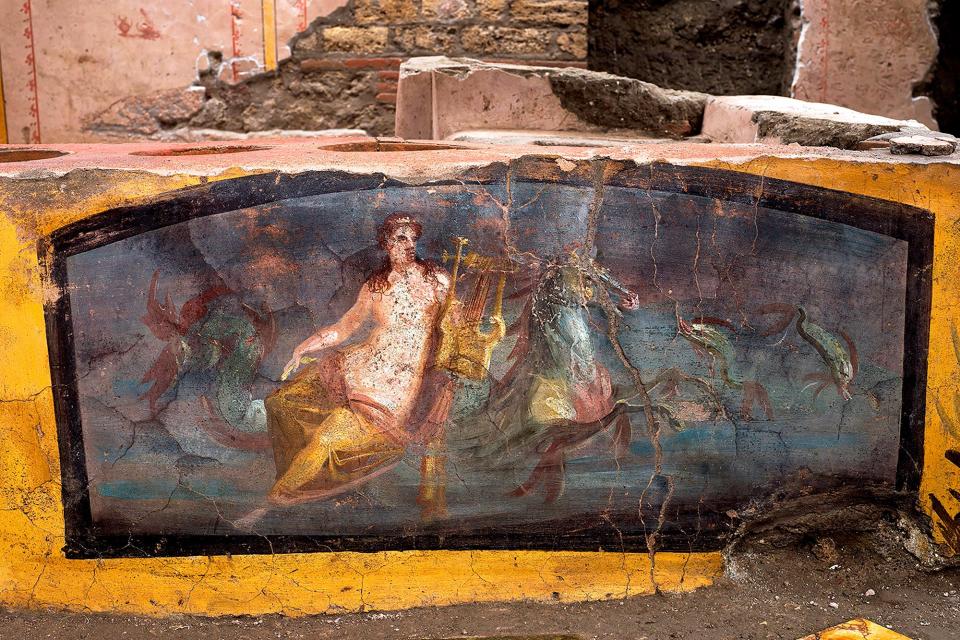Ancient Fast Food Restaurant to Open in Pompeii This Summer

LUIGI SPINA/AFP via Getty
After being closed for business for over 2,000 years, a restaurant in the ancient city of Pompeii is about to have a grand re-opening.
Business Insider reports that the "thermopolium," a fast food and drink counter, has been excavated from the Roman ruins and will be opened up to the public this summer. The ancient diner, which will be available to view starting Aug. 12, was first discovered in Pompeii's Regio V site.
It was located at what used to be a bustling intersection at the corner of Silver Wedding Street and Alley of Balconies, The Guardian reported last year.

ANDREAS SOLARO/AFP via Getty
RELATED: Tourist Returns Artifacts She Stole from Pompeii After Claiming She Suffered 'Curse' for 15 Years
While in operation centuries ago, the diner served up pork, fish, snails, and beef. Archaeologists working at the site also found duck bone fragments and crushed fava beans, which were used to alter the taste of wine.
According to The Guardian, such restaurants were frequented by poorer residents of Pompeii who didn't often have their own kitchen in their homes. At similar thermopolia, typical menus consisted of "coarse bread with salty fish, baked cheese, lentils and spicy wine."

LUIGI SPINA/AFP via Getty
Pompeii's thermopolium is thought to be one of about 80 similar establishments in the city, but the soon-to-be-open ruins stand out for their remarkable condition. The restaurant's counter has been preserved so well by volcanic ash over the years that it's still possible to see the decorative frescoes on its exterior, which feature images of a nymph with a horse.

LUIGI SPINA/AFP via Getty
"As well as bearing witness to daily life in Pompeii, the possibilities to analyse afforded by this thermopolium are exceptional because for the first time we have excavated a site in its entirety," Massimo Osanna, director general at the Archaeological Park of Pompeii, said last year, per The Guardian.
Pompeii was completely buried in ash and pumice in AD79 after the eruption of Mount Vesuvius. As a result of the destruction, between 2,000 and 15,000 people died and their lives were preserved by the volcanic ash.
Years later, archaeologists continue to make new discoveries about the ancient city, which ranks as Italy's second most-visited site just after the Colosseum.

